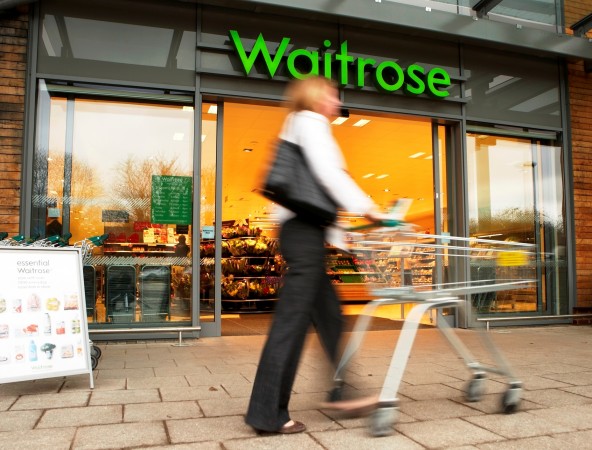The John Lewis Partnership has announced a 21.9% fall in profit before exceptionals in its full year results to 27 January, despite a 2% growth in gross sales.
The employee-owned retailer said the fall in profit to £289.2m is “largely due to lower gross margins in Waitrose driven by the weaker exchange rate and commitment to competitive pricing”.
Bonuses for 85,500 partners have been cut to 5%, down from 6% last year.
The report noted an adverse movement in exceptional items of £282.5m and an exceptional charge of £111.3m, mainly for restructuring and redundancy costs of £72.8m and Waitrose branch impairments of £38.9m.
Waitrose had a “challenging year”, said the report, but achieved gross sales of £6.75bn, up 1.8%, with like-for-like sales, excluding fuel, up by 0.9%. Operating profit before exceptional items was £172.0m, down 32.1%, “held back primarily by lower margins due to our decision not to pass on all cost price inflation to our customers, and by investments in customer experience”. An investment programme was continuing at the grocery retailer.

John Lewis had a strong year, with sales outperforming the BRC market by 1.4% and market share increasing in Fashion, Home and Electricals & Home Technology (EHT). Gross sales were up 2.2% to £4.84bn, with like-for-like sales growth of 0.4%. Operating profit before exceptional items was £254.2m up 4.5%.
Sir Charlie Mayfield, chair of the John Lewis Partnership, said: “As we anticipated, 2017 was a challenging year. Consumer demand was subdued and we made significant changes to operations across the Partnership which affected many partners.
“We said in January 2017 that we were preparing for tougher trading conditions with weakness in Sterling feeding through into cost prices, putting pressure on margins, and much higher exceptional costs as a result of an acceleration of planned changes. This was why we chose to reduce the proportion of profits paid as Partnership Bonus last year so as to absorb these impacts while continuing to invest in the future and in strengthening our balance sheet. We did both and I am pleased to say that despite lower profits, strong cash flow has enabled us to reduce our total net debts.
“Partnership Bonus has been awarded at 5%. We also remain committed to increasing pay rates for non-management Partners, and in October we increased pay outside the annual pay review cycle for 17,000 Partners. As at January 2018, the average hourly rate of pay for a non-management Partner was £8.91.”
In its outlook for the year 2018/19, the report said gross sales for the Partnership in the first five weeks were up 0.6% on last year.
“We expect trading to be volatile in 2018/19, with continuing economic uncertainty and no let up in competitive intensity,” it added. “We therefore anticipate further pressure on profits.
“However, the Partnership will see benefits this year from the many changes we implemented in 2017/18, and the faster delivery of key innovations. Together these will strengthen our competitive position in 2018.”